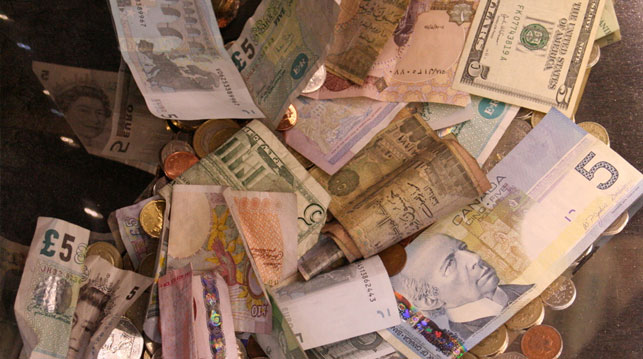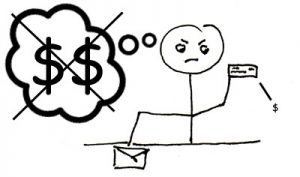
Once you’ve written the manuscript and had it professionally edited, the hard part is over, right? All you have to do is sit back, relax, and let the money come in.
Unfortunately, publishing is never that easy. And the business part of publishing is a complex, often frustrating wilderness for which many writers aren’t quite prepared.
ProofreadingPal supports writers in all parts of their careers, whether honing their academic writing skills or navigating the challenges of publishing that novel, memoir, or nonfiction book. So here on the blog, we’ll be taking a look at the nitty-gritty of the business side of writing and editing and how you can make the best of a changing landscape in modern publishing.
Get a free sample proofread and edit for your document.
Two professional proofreaders will proofread and edit your document.
Today’s topic: Publishing Payments
We all want to get paid for our work. And landing a publishing contract for your writing is awesome. All those nice, fat royalty checks are about to start flowing in…
 Hang on there. Although we’ve all heard the stories about people making millions of dollars with publishing contracts, most authors only get enough to cover the electric bill when a royalty check arrives. But even before that, there’s all these weird terms to decipher.
Hang on there. Although we’ve all heard the stories about people making millions of dollars with publishing contracts, most authors only get enough to cover the electric bill when a royalty check arrives. But even before that, there’s all these weird terms to decipher.
Let’s tackle the most important ones.
Advances
An advance is money that the publisher pays you up front in one to three installments. This isn’t bonus money; it’s literally an “advance against royalties,” which means that you won’t start earning any more money from your book until it sells enough copies to cover that advance payment. This could happen really fast, or it might never happen at all.
If you don’t “earn out” your advance—that is, if you don’t sell enough copies to cover the amount the publisher already paid you—you don’t have to pay it back, but you also won’t earn anything more. You’ll probably also have a hard time getting another contract later because the publisher isn’t earning anything on the deal.
Royalties
This is the real money, your ongoing income stream from writing. Royalties are payments based on a book’s sales. Essentially, in traditional publishing, you’re paying the publisher on the back end to do the work of preparing your book for publication and distribution. (In self-publishing, you pay up front and then collect all the sales income.)
Royalties typically range from 8–12% of list price (the price on the book’s cover) for paperback and hardcover books, although there are lots of little details that can change this or even change things at different points during the sales life of your book. eBook royalties tend to be a little higher, often more like 25%. Some small presses offer much higher royalties on print and digital, up to 50%.
You’ll always want to ask how the royalties are calculated, and we’ll go into this in more depth in a future post. You’ll also want to know how often the publisher pays out and whether anything is going to be deducted or held in reserve. Most traditional publishers pay twice a year, but some pay monthly, quarterly, or annually. In some cases, publishers will hold your royalties until you reach a certain threshold, like $100, and then send you a check. So you might get a check one month and then not again until you reach the $100 threshold three months later.
Always read publisher communications carefully and ask questions if you don’t understand how something is being calculated or how a clause in your contract works. Any reputable publisher will be happy to walk you through it, and you can always get a lawyer to help you go over a contract. It usually takes no more than an hour or two, and the expense is well worth it.
Remember, this is your livelihood and your work! You want to make sure you get the best deal you can and that you are treated fairly and reasonably in your agreement with the publisher. The business of writing might often be difficult and confusing, but you still make it work for you.
Kate S.
Get a free sample proofread and edit for your document.
Two professional proofreaders will proofread and edit your document.
Get a free sample proofread and edit for your document.
Two professional proofreaders will proofread and edit your document.
We will get your free sample back in three to six hours!